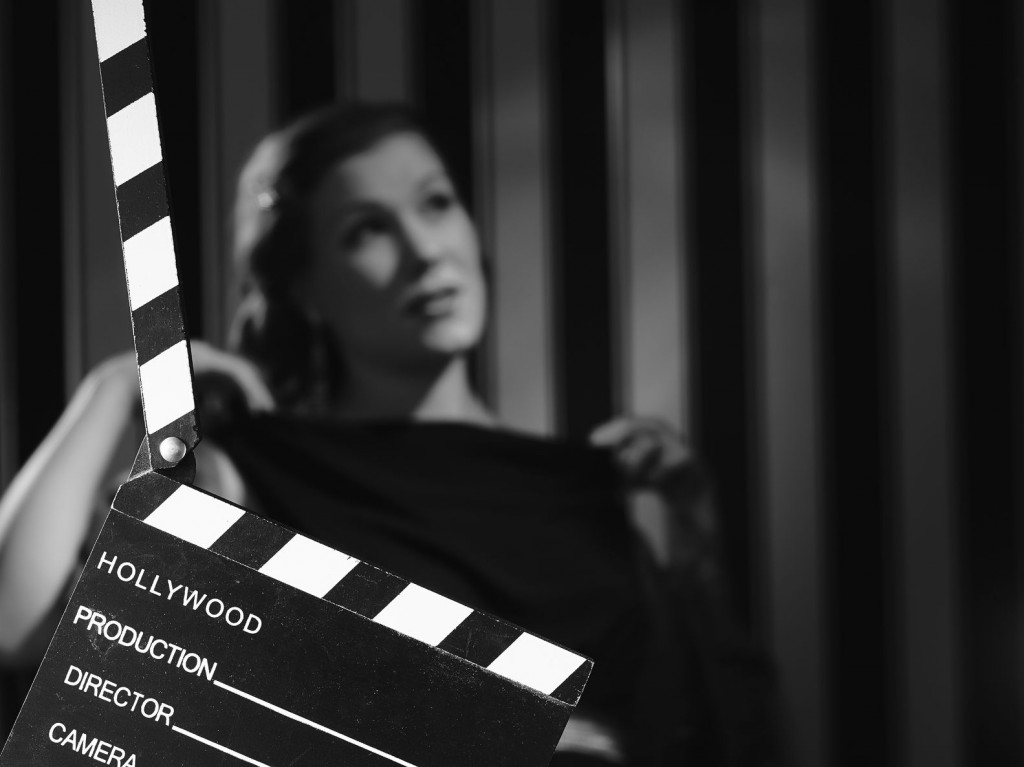LAST WEEK, we heard the news that Sandra Bullock is to star in an all-female remake of Ocean’s Eleven. And we already know that Melissa McCarthy and Kristen Wiig are heading up the all-female Ghostbusters remake that’s coming out next summer. I hear they teach you in journalism school that three makes a trend (I didn’t go to journalism school), so that means we’re just looking for one more all-female remake and then we can officially announce this as the new way Hollywood plans to turn a profit. And, most importantly, we can give that trend a name. Let’s call it the “femake” trend. All-female remake. #Femake. If that starts trending on Twitter, don’t forget it was I who started it. I’d like to add “creator of trending hashtag” to my resume.
According to a report from the Center for the Study of Women in Television and Film, women made up just 12% of protagonists in the top 100 grossing films of 2014. We also accounted for only 29% of all major characters and only 30% of all speaking characters. What was most shocking about those statistics, to me, was that it wasn’t something I really acknowledged or felt offended by in my weekly visits to the movie theater. Women grow up relating to male characters in movies, TV, and books almost as a reflex – we have to, because that’s what’s there. Does that make us more empathetic then men? Maybe it does. Does it cause us to be more content in accepting gender inequality? Maybe it does.
A recent movie release, Sicario, provides us an an interesting way to figure out if femakes will work. To note — saying that femakes might not work is not saying that women shouldn’t be protagonists or that we shouldn’t have all-female cast movies. I guess, in the end, it’s about whether you think men and women are the same, or, whether femake screenwriters do. It’s also got something to do with how you feel about the way men are portrayed in movies and whether actresses deserve (or even want) the same, equal, treatment. When Hillary Clinton, in the Democratic Debate, responded to the question of how she would be a different leader from President Obama with “I’m a woman,” people laughed because they didn’t see her femaleness as something that would impact her character, her decision-making, or her presidency. Can women campaign for her to win in the coming year, because she’s a woman, and say that being a woman has no bearing on whom she is? Do women stop being women when they’re taking on roles previously only played by men?
It remains to be seen if Ocean’s Eleven and Ghostbusters will have the same script as if they were an all-male cast, or if there will be some acknowledgement that the characters have ovaries instead of testicles. In Our Brand is Crisis, released this past weekend to mixed reviews, Sandra Bullock takes on a role originally written for a man (George Clooney, in fact). One of the discussion points is that the film, as such, does not include a storyline relating to her lack of partner or child. Her character, Jane Bodine, is not held to usual female-character standards. We haven’t gotten to the point yet that this seemingly-trivial fact isn’t worthy of a thousand think pieces. The film’s message is not that women ought to be in a relationship and have a child, perhaps, but there’s still bound to be messages about other ways women ought to behave – that’s part of what movies do, for men and women.
Do women stop being women when they’re taking on roles previously only played by men?
So, did men watching Sicario empathize with the protagonist Kate Macer (played by Emily Blunt)? Blunt’s idealistic FBI agent was a role we are told that we are seeing more of – the kind of “complicated” women Maggie Gyllenhaal referred to in her speech at the 2015 Golden Globe Awards – and yet, the role emphasizes the theme of powerlessness through her femaleness. She is overpowered physically a number of times by physically-stronger men. Kate Macer never becomes a gun-toting badass who proves she’s as good as the men around her, but it’s hard to say whether it’s her femaleness or her humanness which prevents her from matching and competing with the psychopathic behavior of the other male characters.
What are the movie genres that usually have a predominantly-male cast? All of them, sure, but which in particular? Westerns, Cop movies, Military movies, Sports movies, Crime movies, and Business movies like Wolf of Wall Street. If women want equality in these sectors in real life — do we really want to be committing an equal number of crimes? I’m sure someone out there is saying women ought to “lean in” to the whole murdering industry, right? — then we should see the same equality on screen. In fact, equality on screen might lead to equality in real life by getting men used to the idea firs, just as movies have spent decades getting women used to what to expect out of life. We need to see future femakes of Beverly Hills Cop, Rambo, Rocky, 2001: A Space Odyssey, James Bond, The Dirty Dozen, Cool Hand Luke, The Expendables, and so on, until there’s parity across all genres.
Femakes do appear as though they might come from the “Lean In” school of feminism, which isn’t a school I’m usually very fond of, but they also seem like a relatively simple and easy way to create change that could then benefit women in tangible ways. Back in the era of silent films, women were the top billed-actors and the top screenwriters, but today women have less influence on cinema with every passing year. Movies influence how everyone thinks and, more importantly, feels – so femakes might be just what we need. At least for now.

















